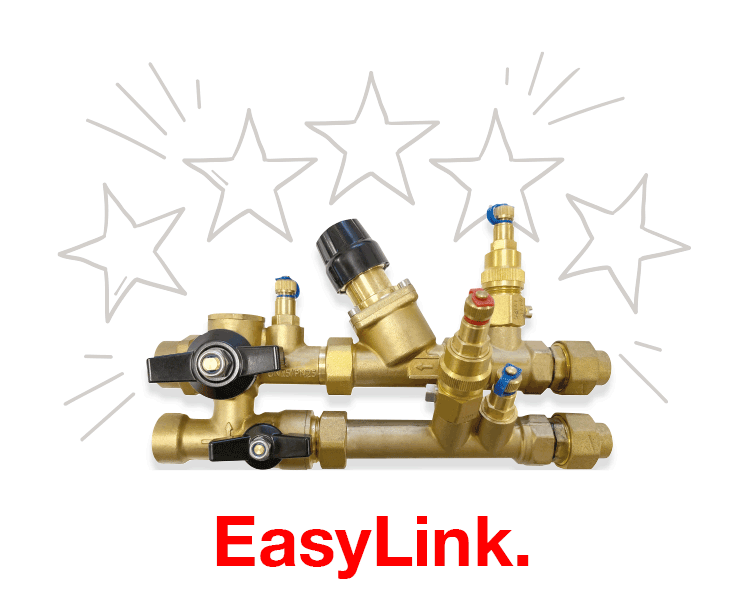Earlier this year, Ministers Simon Coveney and Neale Richmond launched a new collection of standard recommendations compiled by the National Standards Authority of Ireland (NSAI) to guide the efforts of professionals in the retrofit sector to deliver high-quality, sustainable, and efficient building upgrades. James Clarke, Standards Officer at the NSAI, talked to Ireland’s Plumbing & Heating Magazine about this collection’s goals, impacts on the sector, and how the standards will support the government’s targets regarding housing and sustainability.
P&H: First, James, can you give us an overview of the work of NSAI?
JC: The National Standards Authority of Ireland (NSAI) is the national standards body for Ireland. NSAI is a business improvement partner for Irish enterprises, operating as a state agency under the Department of Enterprise, Trade and Employment for 25 years. NSAI currently works with clients in 30 countries. Standards development is a core part of the work of NSAI and advancing the fight against climate change and facilitating greater sustainability across society is a key priority for NSAI.
P&H: What are the key aspects of the Standards contained in the collection?
JC: The collection comprises four key standards for building services being offered in the context of the retrofit sector. These encompass standards on the design, installation, commissioning, and maintenance of water-based heating systems, solar thermal systems, heat pump systems, and solar photovoltaic micro-generators for dwellings.
P&H: These standards already existed before – why launch them as a collection now?
JC: While the standards existed separately before, NSAI recognise that to effectively support users within the retrofit sector, it was necessary to make the collection available as a comprehensive suite of standards. By consolidating these standards into a comprehensive suite, a more cost-effective and all-encompassing approach to achieving multiple facets of retrofit work is facilitated. Furthermore, the collection promotes the exchange of knowledge and fosters consistency in the retrofitting of dwellings for all stakeholders across the sector.
P&H: It seems there is a strong emphasis on the impact of strengthening the sector in the development of the collection. Can you tell us more about the benefits of the collection for the sector?
JC: Absolutely. It is important to note at this point also that all standards are developed through a forum called a Technical Committee at NSAI. The standards in the collection were developed across several different technical committees that have a wide range of expertise including government departments and agencies, training providers, equipment manufacturers, engineering consultants, professional representative bodies, and time-served plumbers and electricians. Having industry representatives in these committees ensures that the standards being produced have the benefit of being scrutinised from the perspective of practical implementation from the outset.
At its core, the benefit of the standards collection is that it provides clear guidelines and best practices for professionals in the retrofit sector, supporting quality, safety, system performance, and compliance with regulatory requirements. It is also envisaged that it will support organisations who actively apply it in enhancing their reputation, customer satisfaction, and competitiveness in the market. This is particularly relevant with the renewed government emphasis in relation to retrofitting in the programme for government.
P&H: What is the impact of these standards in meeting key Government targets around sustainability in the construction sector?
JC: At the launch of the collection, Minister for Enterprise, Trade, and Employment, Simon Coveney spoke to this very point. He outlined that supporting the uptake of retrofitting plays a role in several different commitments from the Programme for Government regarding housing, climate change mitigation and adaptation, and supporting enterprise in Ireland.
At a national level, the collection supports the implementation of the National Retrofit Plan targets to achieve 500,000 homes retrofitted, and the installation of 400,000 heat pumps in existing premises by end-2030. On an international level, the collection and the broader scope of retrofitting contributes to the UN Sustainable Development Goals which industry plays a key role in achieving. When it comes to retrofitting targets at national and international levels, there is no doubt that industry and decision makers are working hand-in-glove on these issues and the retrofit standards collection aims to facilitate and strengthen that collaboration.
P&H: How do interested parties access the collection?
JC: The collection is available for purchase on the NSAI website, www.nsai.ie. The total cost of the collection is €100, while the individual standards normally cost €53 each. In addition to the new collection, the existing code of practice for the energy-efficient retrofit of dwellings, S.R. 54, is also available to download from NSAI’s webstore. S.R. 54 is sponsored by the Sustainable Energy Authority of Ireland (SEAI) and is available to download free of charge.
For more info…
T: +353 (0)1 807 3800
E: info@nsai.ie
www.nsai.ie











